- Home
- Sherwood Smith
The Phoenix in Flight Page 6
The Phoenix in Flight Read online
Page 6
“Yes, senz-lo Barrodagh.” Her voice took on the flat cadence of a report. “We observed him covertly, moving in only when he tried to leave. We apprehended him and activated the backup message routing. I was just preparing a message to inform you that we have him safely on-board, and have tested him for serum allergies. He is safe for veritonin, with an estimated tolerance of one hour.”
“That is well. I will personally interrogate him via hyperwave.” He fixed Dulathor with a minatory stare. “There is to be no observation or recording of the interrogation; this touches the will of the Avatar.” The Qoholeth team knew nothing of Cheruld’s operations and he had no intention of letting them find out.
The woman’s face tightened, and her eyes flickered at the mention of the word ‘Avatar.’ “It shall be as you command. We will have him ready within fifteen minutes.”
o0o
Never had one-quarter hour passed more slowly for Barrodagh. But the next hour, until the veritonin killed Cheruld, passed all too quickly—had he learned all he could? Had he overlooked a question, failed to probe an implication? The hours afterward, while he strove to understand and contain the disaster that had overtaken him, had seemed to pass even faster.
Barrodagh rose from his desk and walked shakily to the door, moving as slowly as though he were already outside in the high-gee corridor.
Long habit halted him within the half-circle inlaid in the carpet. He braced himself with his hands on either side of the doorframe. He barely noticed the familiar sense of upward acceleration as full Dol’jharian gravity gripped him. He now weighed thirty percent more than normal, and a fall would almost certainly mean broken bones, if not worse.
The gray-clad conscript outside came to attention as the door slid open and Barrodagh shuffled out, and then stiffened even more as he saw the expression on the Bori’s face. Apparently what he himself knew to be overwhelming fatigue appeared as mere displeasure to the Dol’jharian.
The faces carved in riotous profusion in the stone of the corridor walls seemed to leer at him as he passed in the slow shuffle-walk that was a Bori’s best speed on this miserable planet, their eyes mocking as he remembered the triumphant mood of earlier that day. In control... in control.
The Bori shuddered, and not from the cold of the drafty hall. Eusabian’s paliach against the Panarch, twenty long years in the making, might even now be crumbling to ruin. As he began to descend the stairs toward the corridor leading to his quarters, he stumbled ever so slightly, and adrenalin flooded his body as he realized how dangerously fast he was moving. He stopped, great shuddering gasps convulsing him and exacerbating the bone-deep pain of too much weight. It might be better to just let go: falling down the stairs would almost certainly kill him. But almost certainly wasn’t good enough. If he survived, every breath would be a burden of insupportable, unending pain in the mindripper.
No. He would not accept defeat so close to the triumph he had long anticipated. Cheruld tried to alert the Panarchists, but our communications are faster and it may be—he allowed himself a small glimmer of hope—it may be that the space-time lag will work in our favor.
Barrodagh grimaced as he remembered the head computer tech condescendingly explaining how impossible it was to give him the answers he needed in the time he demanded. When Barrodagh threatened her with the mindripper and worse, she had nodded jerkily and broken the connection. He would have the answers before dawn, as required.
He reached the door to his suite and stepped onto the half-circle before it, again bracing himself as the floor seemed to drop out from under him with the return of Bori gravity. He stepped through and stopped just inside to enjoy the blessed release of breathing without the oppressive weight of Dol’jhar pulling on heart and lungs, letting the warm ambience of the room soak into him. Here, deep within Hroth D’ocha, there was nothing of Dol’jhar, except the occasional swaying of the tower, and that was lessened.
Without warning, as if released by the comparative safety of his private quarters, the vibration deep within his body that had not left him since Morrighon’s report erupted outward. Barrodagh lunged desperately for the disposer as he felt every bit of bodily control reaved away from him by terror, felt himself fall to the tiled floor, and gratefully surrendered to unconsciousness.
o0o
Jerrode Eusabian, Avatar of Dol, stood at the same window at which he had stood throughout the Siege of Dol’jhar, and where the Great Paliach had begun.
A black silken cord writhed with sinuous motions around his fingers as they wove it in an intricate pattern, every loop and knot in the dirazh’u a reckoning of injuries endured and vengeances promised. Above him the light of the karra-fires flickered across the carven ceiling, stirring the ancient figures of gods and demons to fitful life; the rumbling crackle of the distant volcano came muffled to his ears through the invisible monocrystal wall before him.
He stood at the edge of a dizzying drop. From his tower the fortress walls fell sheer to the city below. There were no other towers; the low angular buildings gleamed dully in the gray-green dawn of a Dol’jharian spring, while beyond, the land rose in craggy, snow-streaked terraces to the fiery heart of his demesne.
Eusabian’s gaze swept up, past the looming lightning-stitched cloud of ash billowing from the riven peak of Karra D’Ocha, and fixed on the bright point of light rising swiftly over it in the slowly lightening dawn. It looked like a dagger pointed at Jhar D’Ocha, threatening the heart of the Kingdom of Vengeance. As he watched the Panarchist Quarantine Monitor loft higher into the northern sky, his fingers recalled the end of empire, knot by knot.
...The corvette fled the lock of the mortally-wounded battlecruiser just ahead of the Arkadic Marines, whose successful lance attack had doomed Eusabian’s flagship, and with it, his conquest of Acheront. From the bridge of the little ship, the Avatar watched the hull of the Blood of Dol dwindle from looming wall to an immense ovoid marred by a crater whose jagged walls vented huge jets of flaring gas. An ardent spark of light deep within the vast wound blossomed into a fierce glare that blacked out the imagers. Eusabian’s skin prickled as radiation slashed through the corvette’s shields, and then the fiveskip engaged and hurled them to safety and the long voyage back to Dol’jhar...
The Quarantine Monitor faded swiftly as its circumpolar orbit took it higher, and Eusabian’s gaze shifted to the distant volcano. Around him the tower shuddered and groaned momentarily; as the gravitors compensated for the rolling quake, his fingers grasped another knot in the dirazh’u.
There was no longer night in Jhar D’Ocha. The planetary Shield, almost fully excited by the relentless hammering of the Panarchist battlecruiser, now wrapped the planet in a coruscating aurora from poles to equator.
But there was no longer day, either. The fulgent display at the edge of space penetrated only dimly the clouds of ash exploding from the volcanoes at the heart of Jhar D’Ocha. The planet’s crust was beginning to resonate, provoking the karra fires to a level of activity they had not seen for centuries. The ground shuddered almost continuously now, punctuated by fiercer spasms.
Another blow from space—a distortion in spacetime itself—shivered through the Avatar’s bones, followed almost immediately by a violent temblor that wrenched viciously at Hroth D’Ocha. Eusabian could hear the crash of falling masonry but could see nothing of the city below, now half-buried in ash and pocked with craters from falling ejecta.
And Jhar D’Ocha’s plight was not the worst of it; elsewhere pyroclastic flows and tsunamis had claimed countless victims. But Eusabian would not order the Shield down. The Avatar did not surrender; to do so would prove him a false vessel of Dol. The Panarchists must batter it down, no matter the cost ...
Twenty years later, Karra D’Ocha, and volcanoes all over Dol’jhar, had yet to settle back into somnolence. Air flight was still difficult. Machinery wore out quickly, and agriculture, never very fruitful, had become even more marginal. Eusabian blinked as light flared from the distant volcano, a li
ghtning-wreathed jet of gas spearing upwards, and his fingers found another knot.
The Shield had fallen, the resonance induced by the battlecruiser’s punishment finally overwhelming the generator. The mind-numbing blows from space had ceased, the trembling of the ground abating.
But there had been no communication from the Panarchist admiral in the almost ten days since. The Avatar knew that subordinate lords, especially those that had fled back to Dol’jhar from planets in rebellion following Acheront, had attempted contact, to no avail. He had not, waiting with increasing confidence to see if his enemy would play out the struggle as Eusabian hoped, the only way he could survive as Avatar.
Then his answer arrived as a streak of light stabbing out of the sky onto the spaceport northeast of Hroth D’Ocha, which blossomed into a dome of light followed by a double concussion that was immediately overwhelmed by a blast that shook the tower fortress like a chuqath with an arrachi in its jaws. Eusabian’s heart swelled with triumph as he recognized in the timing, identical to the interval between the arrival of the Trucial Commission after Acheront and the Karush-na Rahali that had swept it away in a night of terror and vengeance, the answer he had hoped for.
Even the report a few minutes later that every spaceport on Dol’jhar had been simultaneously destroyed by kinetic strikes could not dampen his exultation. The timing acknowledged his supremacy: they intended further negotiation through him. He would remain Avatar.
He dismissed the messenger, and as the door closed behind the Bori, Eusabian lifted up his dirazh’u and began the weaving of his Great Paliach. He knew not how he would accomplish this revenge upon his enemy, and all his enemy held, but his revenge would not be denied, for was he not the Lord of Vengeance?
The last glimmer of the Quarantine Monitor faded from sight.
Soon the Avatar would obliterate that symbol of defeat hanging insolently above his planet, and annihilate those who had placed it there.
His Paliach against the Panarch Gelasaar, twenty years in the making, was now unfolding with crushing force: first his sons, then his kingdom, and finally his life.
Soon Eusabian would receive news of the heirs’ deaths and the simultaneous capture of the Panarch, and terror far beyond what he had inflicted on the Panarch’s consort and her Commission long ago would be unleashed on the Thousand Suns. Soon he would hold in his hands the key to his enemy’s destruction—how would Gelasaar react to knowledge that the Heart of Kronos had been in his control for 30 days, indeed, had been free for the taking for over seven hundred years?
Eusabian smiled. Between his fingers the cord twisted like a living creature trying to escape inevitable death, the knot growing ever more complex, shifting and changing as Eusabian contemplated his coming triumph. The precise timing of those deaths formed a clue to the nature of what faced his enemy, although it would be too late to help, even if the Panarch had the breadth of vision to perceive it.
A subtle tone interrupted his thoughts.
The Lord of Vengeance scowled. No Dol’jharian would interrupt the solitude of this hour; of the Catennach only Barrodagh would have the temerity, and then only for the most momentous reason.
His fingers stilled for a moment, then he spoke.
“Enter.” He turned back to the window, his fingers again weaving the silken cord into an ever more intricate web.
o0o
Barrodagh tried one more time to rub the sting of exhaustion out of his eyes, but yanked his hand to his side when he heard the edge of menace in Eusabian’s voice. On Dol’jhar, among the nobility, the hour before dawn was the orr norhach pelkun turish—the Hour of the Unsheathing of the Will.
Barrodagh had never before dared intrude on the Avatar at this time and wished he didn’t have to now. But he had no choice. His tongue found the slight roughness of the wafer he’d placed on his back molar as soon as he’d awoken from his fugue in the disposer, even before he’d stripped and cleansed his aching and befouled body and then sat down, sleepless despite overwhelming fatigue, to await his underlings’ reports.
A hard gritting of the teeth, and Eusabian can do as he wills with my carcass. Barrodagh didn’t know or care if the poison was painless—anything was preferable to falling into the hands of Evodh, directed by the vengeful passions of the Lord of Vengeance.
The door slid open silently, and a wash of light from the corridor briefly illuminated the Lord of Dol’jhar’s brooding, strong-nosed profile as Barrodagh forced his gravity-wracked body through. His stomach griped when he caught sight of the dirazh’u in his lord’s hands and the complexity of its knots. Has he been curse-weaving all this time?
Barrodagh tried to calm himself as he bowed, his back spasming with pain. His report to Eusabian would be, must be, a masterpiece of management. He must give the Lord of Vengeance the answers he would demand before they were voiced, lest Eusabian ask a question that could not be answered without revealing the magnitude of Barrodagh’s failure.
Eusabian did not look at him, and said nothing as Barrodagh tried to find his voice.
“Lord...” began Barrodagh finally, but for a panicky moment he could not continue, for to his finely-tuned senses, honed by years of service to the Lord of Vengeance, the tower room was slowly filling with the force of his lord’s anger, and the promise of future pain. Then the words came in a rush.
“Lord, Cheruld tried to defect.” At the words, Eusabian’s hands stopped moving and his fingers clenched on the dirazh’u, but he did not turn around. “Our agents on Qoholeth intercepted him trying to flee—he had discovered our intentions toward Galen ban-Arkad.”
Barrodagh swallowed painfully; Eusabian stood absolutely still, staring out the window at the tortured expanse of Jhar D’ocha, the domain his ancestors had held for centuries, which his grandfather had made supreme on Dol’jhar when he established himself as the Avatar of Dol. The growing light deepened the lines that absolute power and its exercise had graven in the Avatar’s face.
Barrodagh continued quickly to prevent Eusabian from asking what had alerted Cheruld to the plot. No one could have known what the Heart would feel like. The Lord of Vengeance would not accept such an excuse, especially since it had been his orders, in accordance with hallowed ritual, that had involved Cheruld with the artifact in the first place. “I interrogated him under veritonin. He had sent messages via scheduled couriers to Arthelion, Narbon, Talgarth, and Lao Tse. But analysis of probable spacetime delays makes it unlikely that any will be received in time.”
Barrodagh hurried on, anticipating the next question. “There is thus no threat to your paliach against the Panarch or his sons. The message to Narbon might get there before the scheduled assassination, but our backup plan will ensure success even if the Tarathen woman attempts to warn the Aerenarch.”
Although a 100-megaton fusion bomb won’t leave much of a paliachee.
A flutter of laughter behind Barrodagh’s ribs warned of hysteria—mania—not far off. He dug his nails deep into the palm of his hand, using the pain to regain control as he spoke. “We expect no difficulty on Talgarth or Arthelion: it is impossible for any warning to reach them in time. The same is true for Lao Tse.”
Eusabian turned slowly, expressionless, and Barrodagh’s voice began to fail him, as in a nightmare, when the scream so much desired, the scream that would wake one from the horror if uttered, will not come—and yet the urge to laugh had not subsided.
“There is more?”
“Lord... the Heart of Kronos arrived two weeks early, and Cheruld sent it to Charvann, to a professor of Urian studies.” Barrodagh’s voice was hoarse. “We estimate it will arrive there three weeks after the assassinations. In the meantime, as before, it is safe in the ParcelNet.”
Eusabian was silent for a time that seemed endless to Barrodagh. “I have not heard of this Charvann.”
“It is a planet of no military significance at all, and so was not assigned a fleet in the opening phase of your paliach.”
“Then how will you r
etrieve the artifact?”
The inexorable expectation of success in Eusabian’s voice would have further terrified Barrodagh, but there was no adrenaline left in his system. “We will need to delay Rifter action along the most probable ParcelNet paths from Qoholeth to Charvann until it is safely delivered. I suggest that we divert one of the fleets affected to Charvann with instructions to wait until directed to attack, after we are sure the Heart has been delivered.”
“Which of those is closest to Charvann?”
Barrodagh relaxed just enough to draw a slow breath. The answer to Eusabian’s question really didn’t matter, for either fleet would have to wait outside the Charvann system until the signal for attack was given. But he dared not remind Eusabian of that.
In any case, Barrodagh had anticipated Eusabian’s concern and had already made his decision. Only two fleets lay between Qoholeth and Charvann, both reserves. Charterly’s fleet was closer, but Hreem’s was the only flagship on which Barrodagh had no spy. That damned pet tempath of his.
Both fleets were sizable, their reputations formidable. Charterly was independent, Hreem notorious for ambition and excess. So far Barrodagh had been reluctant to commit them, hoping to use them only in conjunction with a larger battle—preferably under the direct command of Kyvernat Juvaszt, but to them he said he was keeping them for special assignment—and whichever did the best would be rewarded with guarding the shipyards in Malachronte orbit, where the almost-refitted battlecruiser Maccabeus lay in the ways. Barrodagh did not intend for Hreem to win. Maybe he would be satisfied instead with the sure prospect of looting an entire planet.
“Considering the strategic picture, Hreem’s fleet is best positioned, Lord,” Barrodagh replied. “He is presently seven days from Charvann.” Eusabian either did not notice his evasion of the actual question, or did not care.
“Reassign Hreem to Charvann. Have him get the Heart of Kronos. Do not tell him what it is. Will the traitor’s defection otherwise affect my paliach?”

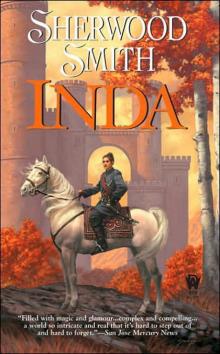 Inda
Inda Danse De La Folie
Danse De La Folie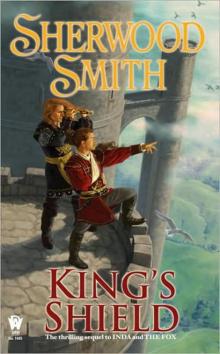 King's Shield
King's Shield Whispered Magics
Whispered Magics Fleeing Peace
Fleeing Peace Barefoot Pirate
Barefoot Pirate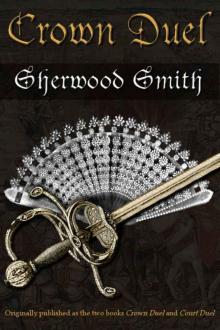 Crown Duel
Crown Duel Mearsies Heili Bounces Back
Mearsies Heili Bounces Back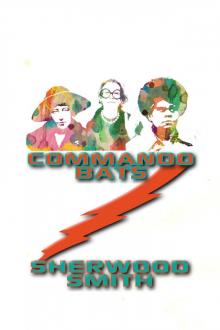 Commando Bats
Commando Bats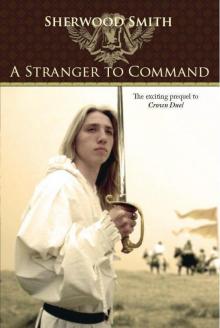 A Stranger to Command
A Stranger to Command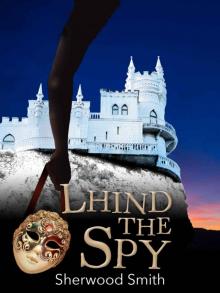 Lhind the Spy
Lhind the Spy The Spy Princess
The Spy Princess Blood Spirits
Blood Spirits Sasharia en Garde
Sasharia en Garde Lhind the Thief
Lhind the Thief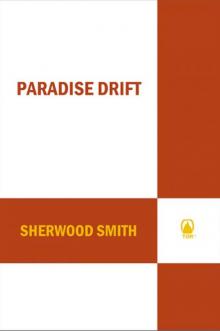 Paradise Drift
Paradise Drift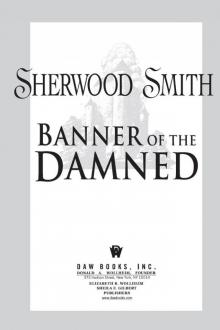 Banner of the Damned
Banner of the Damned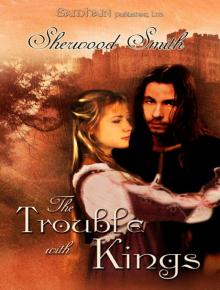 The Trouble With Kings
The Trouble With Kings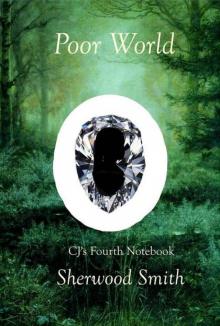 Poor World
Poor World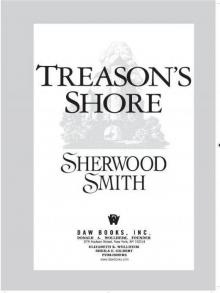 Treason's Shore
Treason's Shore Wren Journeymage
Wren Journeymage A Posse of Princesses
A Posse of Princesses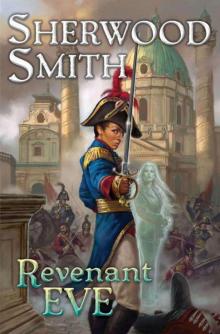 Revenant Eve
Revenant Eve Once a Princess
Once a Princess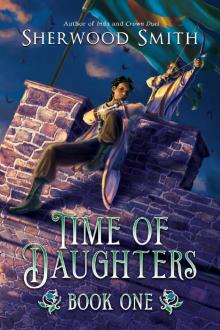 Time of Daughters I
Time of Daughters I Rondo Allegro
Rondo Allegro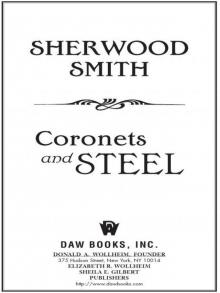 Coronets and Steel
Coronets and Steel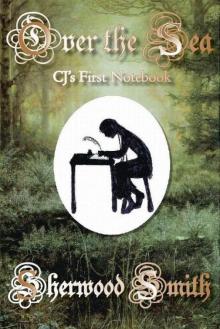 Over the Sea
Over the Sea Senrid
Senrid Hunt Across Worlds
Hunt Across Worlds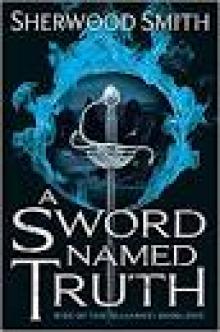 A Sword Named Truth
A Sword Named Truth The Fox
The Fox Twice a Prince
Twice a Prince Fair Winds and Homeward Sail: Sophy Croft's Story
Fair Winds and Homeward Sail: Sophy Croft's Story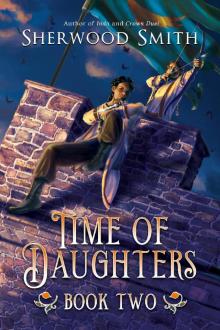 Time of Daughters II
Time of Daughters II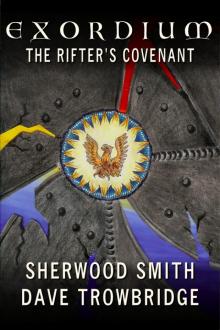 The Rifter's Covenant
The Rifter's Covenant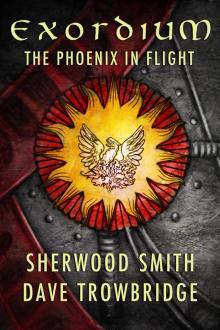 The Phoenix in Flight
The Phoenix in Flight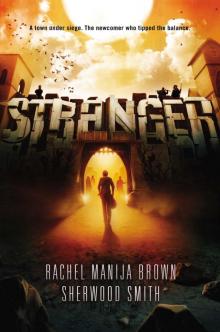 Stranger
Stranger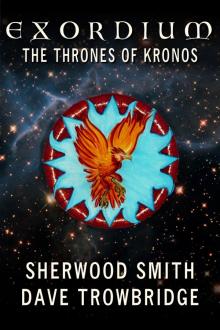 The Thrones of Kronos
The Thrones of Kronos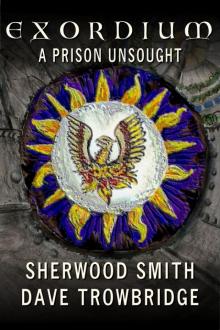 A Prison Unsought
A Prison Unsought Twice a Prince: Sasharia En Garde Book 2
Twice a Prince: Sasharia En Garde Book 2